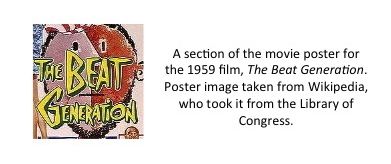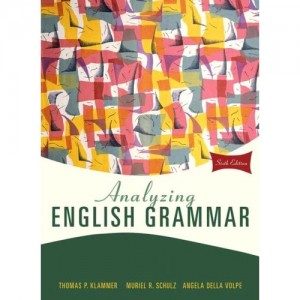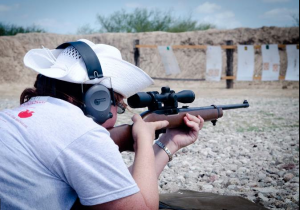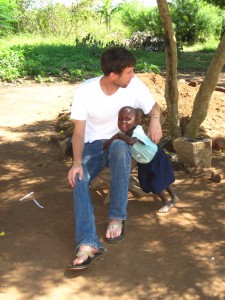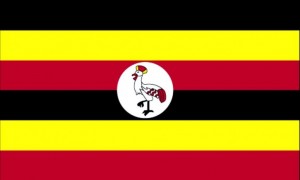Fast Take: ACU professors in English, Theater, and Physics partnered this spring on an exciting project to promote interdisciplinary conversation—an important opportunity for both faculty and students.
* * *
For more than thirty years, the Christian Scholars’ Conference has hosted faculty from Christian colleges and universities across the country, welcoming rich conversations and important scholarship that those faculty members carry back with them to their classrooms. This year, the conference took place at Pepperdine University, themed around The Path of Discovery: Science, Theology, and the Academy. Keynote speakers included renowned physicist and theologian John Polkinghorne and Francis Collins of the Human Genome Project and the National Institutes of Health (and even the Colbert Report).
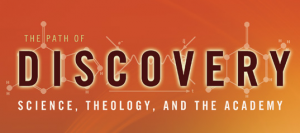
ACU faculty from across the campus presented on panels and participated in discussions that considered critical issues in contemporary science related to their disciplines—everything from theology to music to theater to, yes, literature.
Nancy Shankle, associate dean for the College of Arts and Sciences, chaired a panel of five other faculty members from ACU and beyond: Matt Hearn and Kim Reed of Lipscomb University, Lisa Siefker Bailey of Indiana University-Purdue University Columbus, and Dawne Swearingen and Heidi Nobles of ACU. The panel, “The Uncertainty Principle: Teaching Michael Frayn’s Copenhagen,” promoted discussion of how faculty had engaged principles of physics in various non-science classrooms.
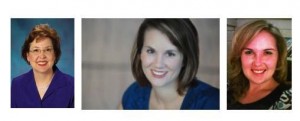
Nancy Shankle, Dawne Swearingen, and Heidi Nobles
To prepare for the conference, faculty members spent the spring 2011 semester teaching science-based courses in literature, writing, and theater. All the classes taught the play Copenhagen, a historical “what if?” drama playing with the science and metaphor of quantum physics in the WWII era.
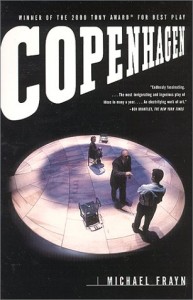 At ACU, Dawne Swearingen and Heidi Nobles partnered to teach the play. Swearingen’s advanced directing students spent the early part of their semester directing scenes from the play for film and live performance; they then presented original and fascinating interpretations to Nobles’ first-year composition students. Nobles’ students grappled with the foundational elements of the play, including genre, characterization, and metaphor; many ended up writing research papers on issues related to nuclear physics and memory, two key elements in the play. A guest presentation from physics professor Paul Morris helped both groups of students better understand the intricacies Frayn works with in the drama.
At ACU, Dawne Swearingen and Heidi Nobles partnered to teach the play. Swearingen’s advanced directing students spent the early part of their semester directing scenes from the play for film and live performance; they then presented original and fascinating interpretations to Nobles’ first-year composition students. Nobles’ students grappled with the foundational elements of the play, including genre, characterization, and metaphor; many ended up writing research papers on issues related to nuclear physics and memory, two key elements in the play. A guest presentation from physics professor Paul Morris helped both groups of students better understand the intricacies Frayn works with in the drama.
The panel itself was the first time the faculty members were all able to sit down and discuss their experiences together. They compared successes and challenges and questions for the future. All emphasized the invigorating nature of taking on outside subject matter in their classrooms. Science and the arts are too often kept separate, but bringing them together allows for new grounding and energy in both.
The field of science writing itself is a rich one for students to explore in terms of career options. Schools like Johns Hopkins and MIT offer master’s degrees in science writing, and the job opportunities for strong writers who also know science well are fascinating—writers and editors are needed for scientific journals, research agencies, medical groups, and more. Based on job projections for the coming years (which reflect high needs for people working in the sciences, including in roles such as teacher and technical writer), students in the arts who also have facility in science should take seriously these interdisciplinary possibilities.
This panel opened up new opportunities for students and faculty to recognize those significant intersections, and we hope the work of the past few months will promote further scholarship from faculty and a new sense of possibility for students.


